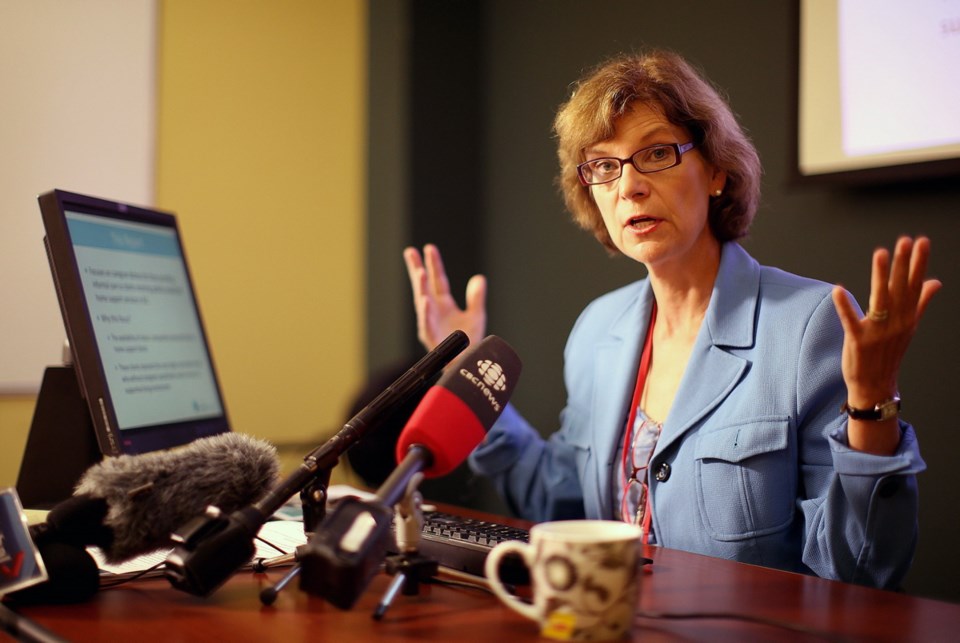British Columbians caring for spouses, parents and other adult family members are increasingly distressed and not getting the supports they need, says a report released by seniors advocate Isobel Mackenzie on Wednesday.
“Caregivers in distress are a growing problem,” Mackenzie said at a news conference.
Distress could be anger, depression, or feelings of isolation and despair.
She noted the report is an update of one from 2015 and surveys only clients receiving home-support services, but estimates there are about one million unpaid caregivers in the province. In the 2015 report, B.C. was determined to have one of the highest levels of caregiver distress in the country — along with Ontario — and more respite care was recommended.
“Two years later, how are we doing? The answer, unfortunately, is not very well,” Mackenzie said.
In that time, the rate of distress has risen by seven per cent to 31 per cent of caregivers. The number of distressed caregivers has increased by 1,000 people.
Meanwhile, the hours of home support being used have decreased by five per cent, despite a policy push to keep people in their homes. There are other decreases in adult day-program use and the length of respite-care stays.
Mackenzie said this is an indication funding has not come with the policy shift toward more access to home support and other programs — which is mainly the responsibility of the province and health authorities.
“So when you add all of this up, what you see is the burden is shifting from the public system to the private caregiver, and that is why we are seeing an increase in the distress levels,” said Mackenzie.
This year, the previous Liberal provincial government committed $275 million over the next four years for home- and community-care services as part of an agreement with the federal government, but it’s not clear how that will be rolled out by the NDP government.
There are more than 30,363 home-support clients in the province, and the average age is 82. Nearly all have a primary caregiver, most often their adult children or spouse. About half live with that caregiver, and burnout is a major concern.
“Having a break for even a few hours can make a huge difference in the lives of caregivers who are feeling exhausted and overwhelmed,” Mackenzie said in a statement.
“For some caregivers, time alone to refocus and recharge is something very precious, and we need to recognize that it can make the difference between feeling strong enough to carry on with commitments or giving up entirely.”
Mackenzie said when services are used, there is success in reducing distress on caregivers. She pointed to a program called Choices in Supports for Independent Living, which provides funds directly to the caregivers to hire the support people they need when they need them.
“It doesn’t work for everyone,” she said, but the data suggest those who choose to use it reduce distress levels by 50 per cent. Mackenzie said it’s also cheaper, funded at $30.39 per hour versus the home-support model at $44 per hour.
Barbra Hopkins, president of the Family Caregivers of B.C., said the report highlights important issues, and the province is at a tipping point with caregiver distress because of the aging population and more complex health needs.
“I believe a tidal wave of care needs are coming,” said Hopkins, who also cares for her 91-year-old mother at home.
Janet McLean, who works in education and engagement for the organization, said much of what they do is help caregivers navigate the system to find the support programs they need.
“We hear from a lot of people who say they just need a break and can direct them to some respite,” McLean said. The non-profit organization also oversees support groups, with several in Victoria and on the Gulf Islands, and assists people in developing care plans that support their needs.
“These brief action plans can really help, especially with the emotional support,” McLean said.



